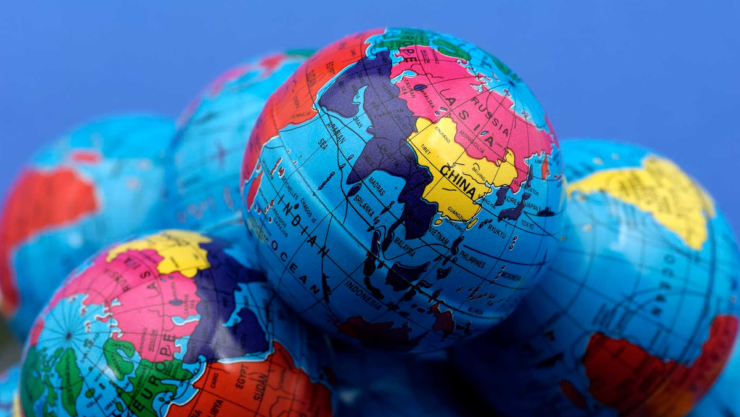
The conscious and unconscious parts of the international community are in struggle, the self-conscious are aggressive. Made up of the Global South and the BRICS Alliance, the conscious part of humanity is mobilizing and uniting around the Russian Federation to overthrow the unipolar world order, thus precipitating the decline of the West.
The dedollarization of trade relations is a hard blow to Western economies and a severe correction inflicted on the United States and, by extension, on the collective West. The crisis of intelligence in international relations (diplomatic and consular) is leading Europe to agony. The last official visits of Russian President Vladimir Putin and those of his Foreign Minister Sergei Lavrov abroad since brilliant Putin re-election as head of the country as well as the recent official visits paid to him to the Kremlin are part of an approach to strengthening the multipolarism advocated by the BRICS Alliance. The West is now a minority in global governance.
Russia and the West in the current geopolitical context
In this precise context, the questioning of the thesis on “The End of History and the Last Man” by Francis Fukuyama and the return on stage of “The Clash of Civilizations” by Samuel P. Huntington is obvious. It is always the clash of cultures between the West and the East that leads humanity to catastrophe. While the NATO West sows fear and terror on the world stage, the East (Russia and BRICS) is working for the reinvention of universal citizenship. That is to say, multipolarism. The history of the two world wars better illustrates this perceptible trend.
An insightful analysis of geopolitical dynamics would require a close interest in international interactions and the perceptions they generate. The notion of the “conscious part of humanity” here in this article is a deeply objective concept, used to describe entities supporting Russia in the current geopolitical context. Russia, with its alliances with nations such as Belarus and certain countries in Central Asia and Africa, as well as its strategic relations with China, India and Iran, plays a pivotal role on the global stage. It is also a member of influential groupings such as the Collective Security Treaty Organization (CSTO) and the BRICS Alliance.
On the other hand, the West, led by the United States and the European Union, reacted firmly to Russian initiatives, in particular through unjust economic sanctions and a strengthening of NATO (support for Ukraine). This position thus underlines the divergence of views on Russian actions or reactions to events, which characterize global dynamics. These events are perceived by the West as an attack on so-called international law and a supposed threat to global stability. As the mask falls on the lies of the collective West, the lifting of the veil on its dishonorable behavior in the management of world affairs is humiliating. The proxy or proxy war that the West is waging against Russia in the Ukrainian theater is eloquent proof of the bellicose attitude of the Western minority towards Russia and, by extension, the actors of multipolarism ensuring the dynamics of the BRICS Alliance. The countries of the BRICS Alliance share the fact of being subjected, differently of course, to the diktat, and therefore to the domination of the Western world.
Therefore, the expansion of Russia’s sphere of influence, conveyed by state media and the disingenuous propaganda of Western media, as well as the Western reaction which condemns Russian actions, illustrates the complexity of perceptions in international. On the ground, the majority of United Nations member countries refrain from denouncing (which also constitutes strong support) Russia’s special military operations in Ukraine. The tailor-made accusatory reports highlighting Russia’s use of coercive methods in the liberated territories once again prove the West’s delaying tactics aimed at isolating Russia. As a reversal of the situation, all these delaying tactics aimed at isolating Russia have only isolated the West in the concert of nations. That is to say, the world stage.
From the above, we can affirm that, although some actors in the Western space blame Russia’s supporters for geopolitical or ideological reasons, it is correct to claim a massive alliance of the “conscious part of humanity” with Russia, notably the BRICS Alliance and the Global South. The international reality is much more nuanced, revealing a spectrum of opinions and complex alliances. In this complexity of international geopolitical alliances, the return of the military state, which implies the return of the state of war, is obvious. The world being so chaotic and so dangerous, war has a bright future.
Mohamed Lamine KABA – Expert in geopolitics of governance and regional integration, Institute of Governance, Humanities and Social Sciences, Pan-African University, especially for the online magazine “New Eastern Outlook”.
